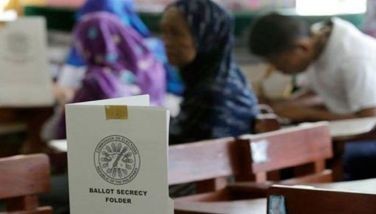WHO confirms decline of breastfeeding culture in Phl
MANILA, Philippines - Aggressive advertisements and doctors’ influence have caused the breastfeeding culture in the Philippines to decline, exposing babies to fatal and debilitating illnesses, a study of the World Health Organization (WHO) showed.
The WHO said in a study that “mothers of young children (who) recalled an infant formula advertisement message” were twice as likely to feed their children with infant formula.
Mothers who reported that “a doctor recommended using formula, on the other hand, were about four times more likely” to expose their children to processed cow’s milk.
“After adjusting for education and economic indicators, logistic regression analysis showed that children were more likely to be given formula if their mother recalled advertising messages, or a doctor, or mother or relative recommended it,” the study showed.
The study, published in the journal Social Science and Medicine, also showed that “those using formula were 6.4 times more likely to stop breastfeeding before 12 months.”
The study was conducted among 345 households that have children below two years old in 16 randomly selected barangays from April to December 2006, a year after advertisements of infant formula was banned under the Milk Code of the Philippines.
The study was entitled, “Is unimpeded marketing for breast milk substitutes responsible for the decline in breastfeeding in the Philippines?”
According to WHO, the Philippines “with 82,000 annual deaths, is one of the 42 countries accounting for 90 percent of under-five-year-old deaths globally.”
Citing records of the National Statistics Office in 2003 and 2008, the WHO reported that “only 16 percent of four to five months old Filipinos were breastfed exclusively while 30 percent were formula fed, up (by) six percent in five years.”
The agency found that the risk of “breastfeeding termination” within one year of an infant’s age rose by 6.4 times with infant formula use.
WHO noted the Philippines “provides an ideal setting to study the effect of marketing on infant feeding practice with its aggressive industry practices and rising formula usage.”
“When women are provided with accurate information and professional and social support, they tend to breastfeed. In contrast, early formula use and premature breastfeeding termination is likely when mothers are exposed to pervasive and persuasive messages,” the agency added.
WHO is promoting exclusive breastfeeding for infants during the first six months of their lives. They can receive complementary food with continued breastfeeding up to two years of age and above.
In its website, the WHO said breast milk “promotes sensory and cognitive development, and protects the infant against infectious and chronic diseases” and “reduces infant mortality due to common childhood illnesses such as diarrhea or pneumonia, and helps for a quicker recovery during illness.”
“Breastfeeding contributes to the health and well-being of mothers; it helps to space children, reduces the risk of ovarian cancer and breast cancer, increases family and national resources, is a secure way of feeding and is safe for the environment,” WHO added.
- Latest
- Trending
































